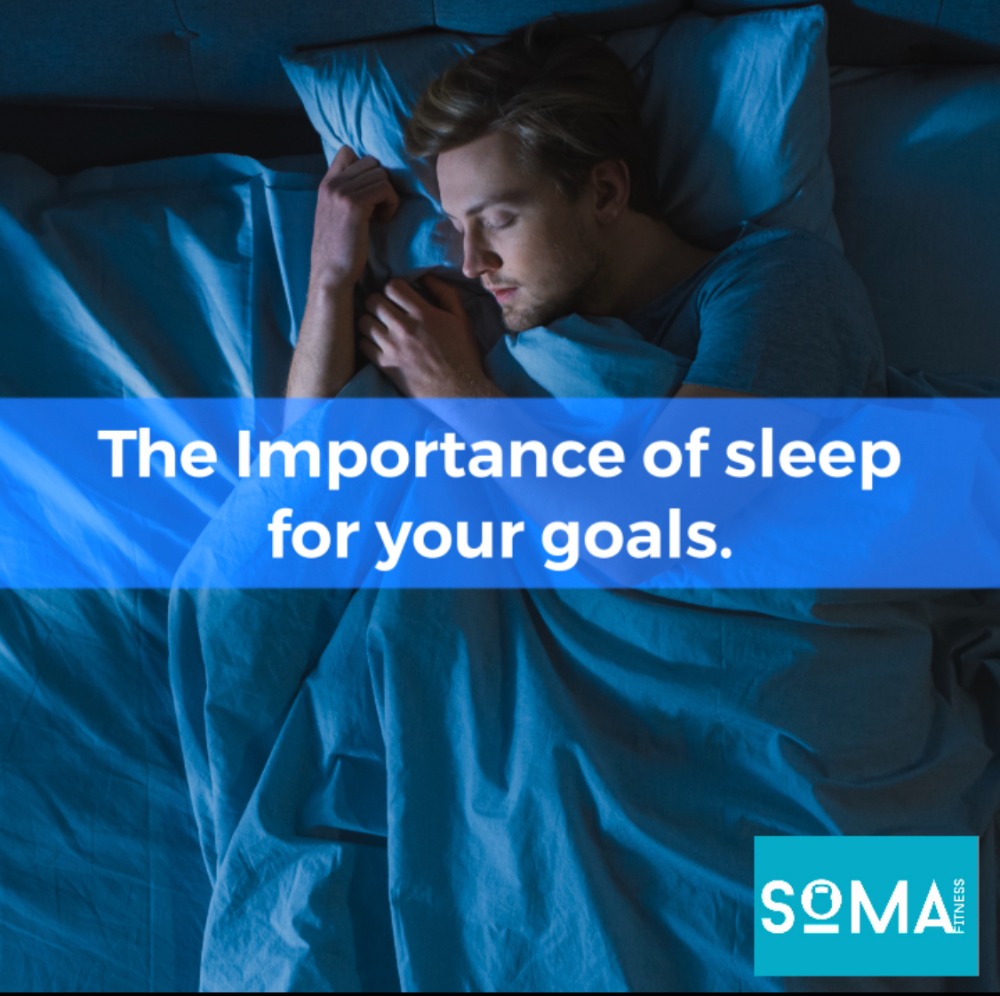The Importance of Sleep for your goals

On average, in the UK, men get 6.17 hours of sleep per night, whilst females get 6.04 hours per night. This falls short of the 7 hours recommended for your average adult. This falls even further short of the recommended amount for someone in regular training, whereby the general rule of thumb is 7 hours + as many hours as you trained for that day. For example, if you trained for 1 hour, then it would be recommended that you sleep for 8 hours (7 hours + 1 hour of training). This article will look into the key factors effecting your training outcomes and how sleep will influence each one.
When we isolate training from nutrition and focus only on getting the most out of the session when we step into the gym, we want to be feeling our best. However, a lack of sleep can drastically effect this. Concentration and motivation towards goals have been shown to significantly reduce in response to low levels of sleep. Whereas, anxiety and irritability have been shown to increase. When these factors are put into play in our daily lives, it will automatically make us enjoy training a lot less and not train at the same level as we potentially could do. Also, for most of the general population who are not fitness enthusiasts, this will be enough to make their attendance to the gym drop by large amounts which will then have the knock-on effect of preventing the gym from becoming a habit whereby attendance becomes second nature. That way, even when they do eventually catch up on sleep, they have to work hard again to try and make it become a habit. Training also increases muscle protein synthesis, the act of building new proteins (the building blocks of muscle tissue). However, lack of sleep actually blunts this response, resulting in less muscle being built each session. This links closely to nutrition which we will move onto now.
Nutrition provides the body will the fuel to execute training efficiently, as well as the nutrients needed to recover and grow. Adequate protein intake is required to stimulate muscle protein synthesis and as mentioned above, lack of sleep blunts this response, instantly making your diet not as optimal as it could be. Next, a lack of sleep has been shown to trigger increased levels of ghrelin and decrease levels of leptin which leads to increased levels hunger and appetite. This is going to make it much more difficult for anyone looking to consistently eat within a caloric deficit each day to lose weight. However, when paired with the lack of interest towards goals, this can also be an issue for people looking to eat within a moderate calorie surplus to gain muscle. This is because if motivation towards goals are low, then this can result in more low-quality foods being eaten, leading to them feeling sluggish and potentially overeating if the foods they choose to eat are hyper-palatable, high calorie foods.
Overall, a lack of sleep can have both direct and indirect negative influences on the results you achieve when trying to change your body composition. Therefore, it should be a priority to achieve adequate sleep if you are serious about making significant changes to your health and fitness.
If you are struggling to get the right amount of sleep, it is worth looking at your sleep hygiene. Sleep hygiene is the term used to describe environmental and behaviour practices used to enhance sleep quality and duration. There are a few factors that contribute to this. Firstly, if your lifestyle allows, a regular sleeping pattern will help your body maintain a healthy circadian rhythm (sleep/wake cycle) so your body will know when it’s time to sleep. Similarly, it can help to create a routine before bed to aid with this. However, this should not include any screen time, as screens decrease melatonin levels, the hormone which helps us to fall asleep. Therefore, consider relaxing activities which do not include a screen such as having a bath and reading. Next, we want to eliminate the effects of drugs that negative impact sleep. The two common drugs being used are alcohol and caffeine. The half-life of caffeine is approximately 5 hours. Therefore, if you consume a large energy drink (approximately 160mg of caffeine) at 5pm, there will still be 80mg of caffeine in your system at 10pm. Therefore, it’s important to consume your caffeine early in the day, a general rule is no later than 8 hours prior to bed but even earlier would be better. With alcohol, often people believe it helps sleep as they can fall to sleep more easily after consumption. However, it effects sleep quality, therefore limiting consumption to weekends will prevent evening glasses of wine from impacting your sleep in the week.
If this does not work, I would recommend seeing a specialist whereby they would analyse your individual case and work out the best method of treatment, potentially recommending certain supplements such as magnesium. Overall, I hope this article has helped inform you of the importance of sleep and how you should prioritise it, in order to aid you in reaching your health and fitness goals.

Leave a Comment
(0 Comments)